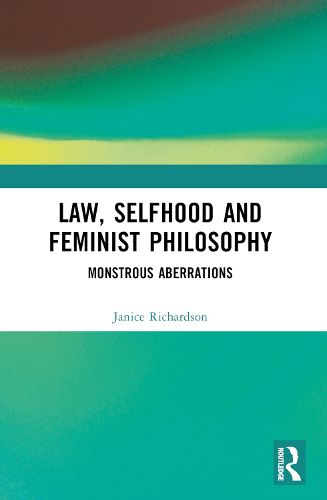Readings Newsletter
Become a Readings Member to make your shopping experience even easier.
Sign in or sign up for free!
You’re not far away from qualifying for FREE standard shipping within Australia
You’ve qualified for FREE standard shipping within Australia
The cart is loading…






At the intersection of law, feminism and philosophy, this book analyses the ways in which certain bodies and 'selves' continue to be treated as monstrous aberrations from the 'ideal' figure or norm.
Employing contemporary feminist philosophy to rethink accepted legal ideas, the book is divided into three sections. The first focuses on the different relational ontologies of philosophers Adriana Cavarero and Christine Battersby - also considering their work via a third term: Spinoza. The second turns to diverse feminist engagements with the social contract theorists. The third section employs insights from throughout the book to focus more explicitly on law - and, in particular privacy law and the so-called 'wrongful birth' cases. Bringing together more than twenty years of sustained reflection, this book offers an insightful account of how contemporary feminist philosophy can contribute to a richer understanding of law.
It will be of enormous interest to scholars and students working in the areas of legal theory, feminist thought and philosophy.
$9.00 standard shipping within Australia
FREE standard shipping within Australia for orders over $100.00
Express & International shipping calculated at checkout
At the intersection of law, feminism and philosophy, this book analyses the ways in which certain bodies and 'selves' continue to be treated as monstrous aberrations from the 'ideal' figure or norm.
Employing contemporary feminist philosophy to rethink accepted legal ideas, the book is divided into three sections. The first focuses on the different relational ontologies of philosophers Adriana Cavarero and Christine Battersby - also considering their work via a third term: Spinoza. The second turns to diverse feminist engagements with the social contract theorists. The third section employs insights from throughout the book to focus more explicitly on law - and, in particular privacy law and the so-called 'wrongful birth' cases. Bringing together more than twenty years of sustained reflection, this book offers an insightful account of how contemporary feminist philosophy can contribute to a richer understanding of law.
It will be of enormous interest to scholars and students working in the areas of legal theory, feminist thought and philosophy.